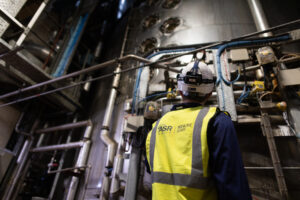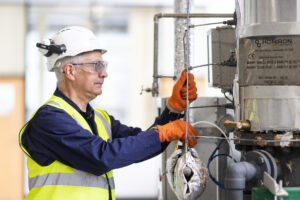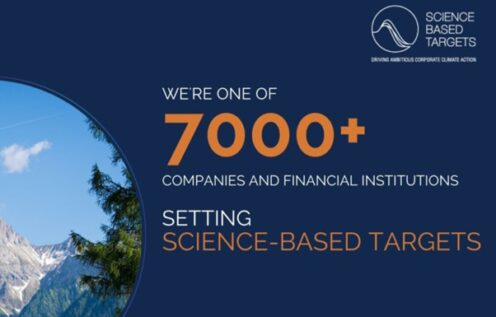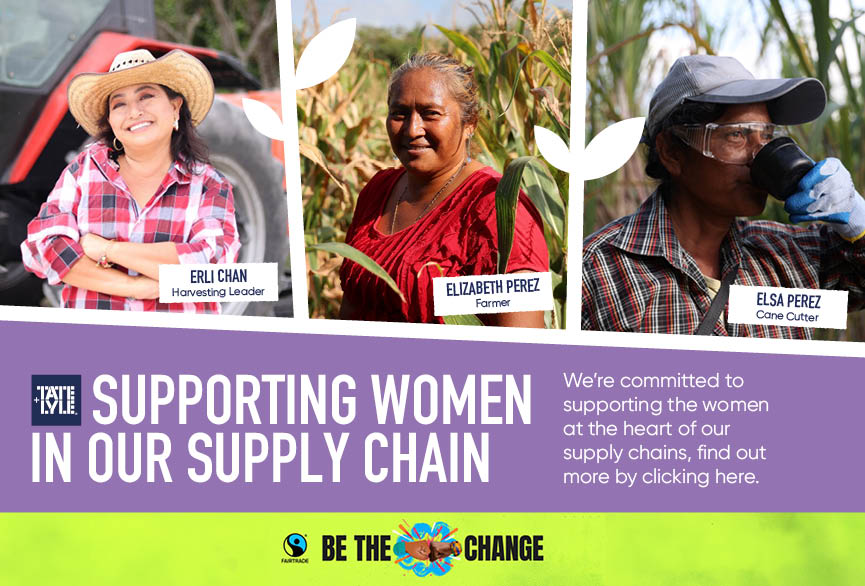18/05/2023 Case study
Exploring the feasibility of using new technologies to reduce natural gas consumption & reduce carbon emissions
 Sugar manufacturing is an energy intensive process, requiring large quantities of fuel to turn agricultural raw materials into consumer products such as granulated sugars, syrups and treacles.
Sugar manufacturing is an energy intensive process, requiring large quantities of fuel to turn agricultural raw materials into consumer products such as granulated sugars, syrups and treacles.
We are delighted to have received a grant from the UK Government’s Industrial Energy Transformation Fund (IETF) for a project to explore new technologies that could help us, and hundreds of other small and medium-sized factories like ours in the UK, decarbonise.
Our project will undertake a comprehensive Front End Engineering Design (“FEED”) study to develop a solution that reduces natural gas consumption (and therefore also carbon dioxide emissions) by double-digit percentages, compared to current use at our Thames Refinery in East London.
Building on earlier research in to emerging technologies
The project builds on our earlier work examining the technical and economic viability of carbon capture as well as fuel-switching to renewables. Both of those studies indicated that those options may well be some years away, and will depend on other parties developing carbon sequestration networks and/or new fuel supply chains such as green hydrogen. Rather than wait for these solutions, this study gives us the opportunity to reduce our fuel usage relatively quickly and keep us progressing on track towards our net zero target for Thames Refinery.
“This project is a great example of reduce, re-use and recycle. We spent a lot of time looking at replace – with carbon capture or renewable fuels – but realized through that work that these technologies will not be available as quickly as we want them” John Kerr, Vice President, Research & Technology at Tate & Lyle Sugars
The FEED study will look at implementing technologies that allow us to re-use even more of our heat production than we currently do, as well as integrate innovative new sugar manufacturing technologies that use less energy than currently. The extra challenges of this project that the FEED study will also address include how we make these substantial changes to an existing complex factory that needs to continue to operate and supplying the UK food market, as well as what these changes will mean to the factory’s wider overall energy supply and demand balance.
The project could have double-benefits, allowing us to cut carbon emissions quicker, and leave us with less fossil fuel to replace when the new technologies are ready.
The project is jointly funded by both Tate & Lyle Sugars and the IETF, and the aim is for the detailed and comprehensive FEED study to provide the level of design and cost information necessary to progress to a final investment decision.
Learn more about the UK Industrial Energy Transformation Fund here – Industrial Energy Transformation Fund – GOV.UK (www.gov.uk)

 The project could have double-benefits, allowing us to cut carbon emissions quicker, and leave us with less fossil fuel to replace when the new technologies are ready.
The project could have double-benefits, allowing us to cut carbon emissions quicker, and leave us with less fossil fuel to replace when the new technologies are ready.


